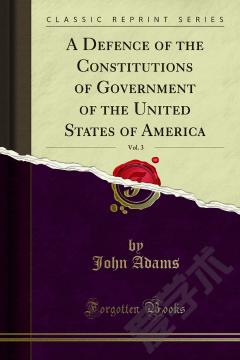A Defence of the Constitutions of Government of the United States of America
In the twelfth century, the cities, after the fi militude of ancient Rome, all re affumed the title of confuls, and began, fome fooner and others later, to make their proper flatutes, and ef'tablifh their popular government. Though it is not pof fible to afcertain the precife time when the infli tution of confuls was firf't made in Pif'toia, they are, neverthelefs, found named in the flatutes of 1107; and of thefe there were two, called the Conful of the Soldiers, and the Conful of Jul'cice, taken from the nobility of the place, and were called the Greater Confuls, to difiinguifh them from the plebeian confuls of the fecond clafs, call ed the leiter Confuls, or Confuls of the Mer chants, taken from the common people. Their author1ty, and fometimes their numbers, were va nous; but there ough't ever to be one more of the popular than of the greater confuls T. The eleétion of thefe magif'trates was made every year by the people, with the intervention of all the go vernors (rettori) of the arts of the city; and they governed, with the council of an hundred of the better fort of citizens, adminiilering juf'tice both to the laity and the ecclefiafiics. This council, befides its extraordinary ah'emblies, was obliged to meet in the months of March, May, July, and September, after a previous intimat1on, given by the confuls, of the bufinefs to be done and for the refult of this aftembly all determinations.
{{comment.content}}








 京公网安备 11010802027623号
京公网安备 11010802027623号